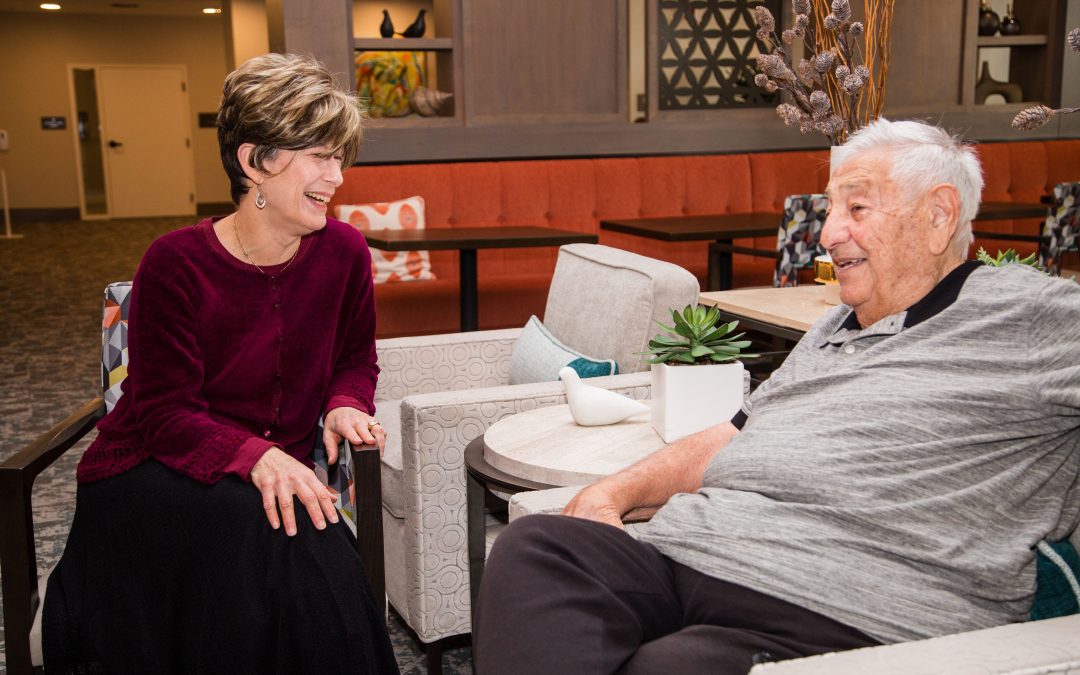Moving a loved one into an assisted living community of any kind is one of the most important and complex transitions a family faces. It’s a time filled with mixed emotions. Families are feeling relief that care and support is available while also experiencing tenderness and apprehension for all the changes ahead. With the right preparation and information, this move can be a positive step toward safety, connection, and peace of mind.
At Assisted Living Connections, we’ve guided hundreds of families through this process, helping them plan ahead and avoid unnecessary stress. Here are some key steps that every family should take to prepare.
Start with Open Conversations
Before anything else, if possible, talk with your loved one about their wishes, needs, and concerns. These early conversations set the tone for everything that follows. Be honest about what kind of support they need. Consider whether it’s help with daily activities, medication management, or memory care and what matters most to them in their next home.
The Eldercare Alliance reminds families that “having open, honest conversations helps everyone feel included in the process and makes the transition easier for your loved one.” We couldn’t agree more, communication and compassion are the foundation of a smooth move.
Research and Tour Communities
Once you have a sense of your loved one’s preferences, begin exploring assisted living communities that align with those priorities. Touring in person allows you to get a feel for the atmosphere, the staff’s warmth, and the sense of community.
When visiting, pay attention to:
- Cleanliness and safety features
- Staff-to-resident ratios and responsiveness
- Activity programs and dining options
- Proximity to family, friends, and familiar places
At Assisted Living Connections we work with you to provide a personalized list of local communities, schedule tours, and even accompany families to help evaluate the best fit, all at no cost to you.
Organize Medical and Legal Information
Preparing important documents before the move helps ensure continuity of care and minimizes confusion. Gather:
- Medical records, medication lists, and physician contacts
- Powers of attorney and advance health care directives
- Insurance and financial information related to care
Having everything ready allows the community to better understand and meet your loved one’s health and safety needs right away.
Plan for the Move
Downsizing and packing can be one of the most emotional parts of the process. Take your time, and involve your loved one in choosing which personal items and familiar belongings will make the new space feel like home.
A few helpful tips:
- Measure the new space so you know what furniture will fit comfortably
- Bring familiar keepsakes like photos, favorite books, or treasured decor
- Label boxes clearly and pack essentials separately for easy access on move-in day
As Eldercare Alliance notes, a little preparation goes a long way and the small touches of home help new residents feel comfortable and confident in their new surroundings.
Support a Smooth Adjustment
Once your loved one has moved in, stay in touch frequently during the first few weeks. Attend events or meals together if possible, and encourage them to take part in activities that match their interests. Adjustment take time for anyone. Routine visits, phone calls, and gentle encouragement can make all the difference.
Keep Communication Open
Check in regularly with the community’s care team. Open communication helps everyone work together to meet your loved one’s needs and make necessary adjustments as those needs evolve. Most communities are happy to schedule care plan meetings or provide updates whenever you request them.
You Don’t Have to Navigate This Alone
Every family’s situation is unique, and moving to assisted living can feel overwhelming at first. Assisted Living Connections is here to simplify the process, from identifying the right community to offering resources and ongoing support before, during, and after the move.
If your family is beginning to plan a transition, reach out today. We’ll help you take the right steps: one conversation, one visit, and one confident decision at a time. 888-880-1811


Recent Comments